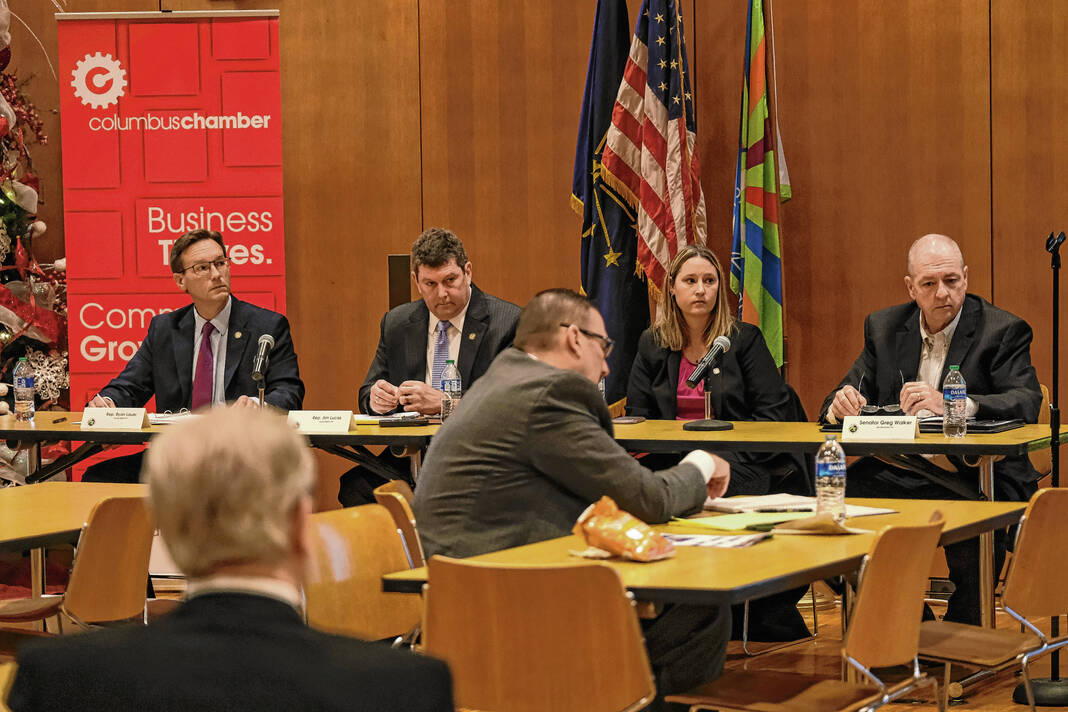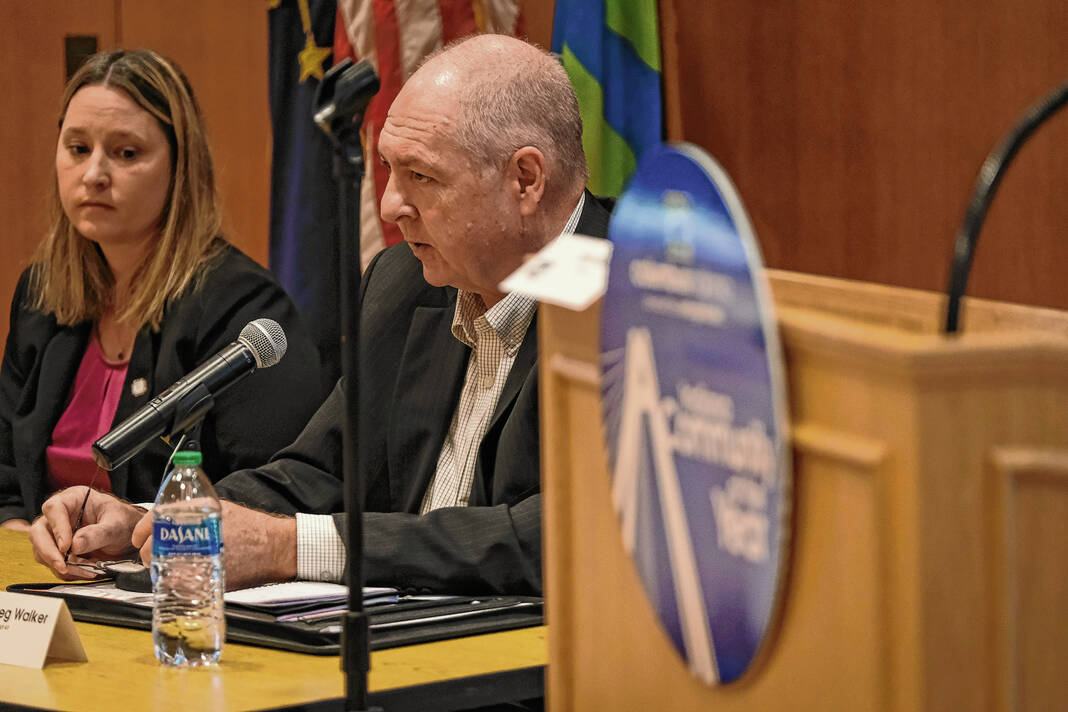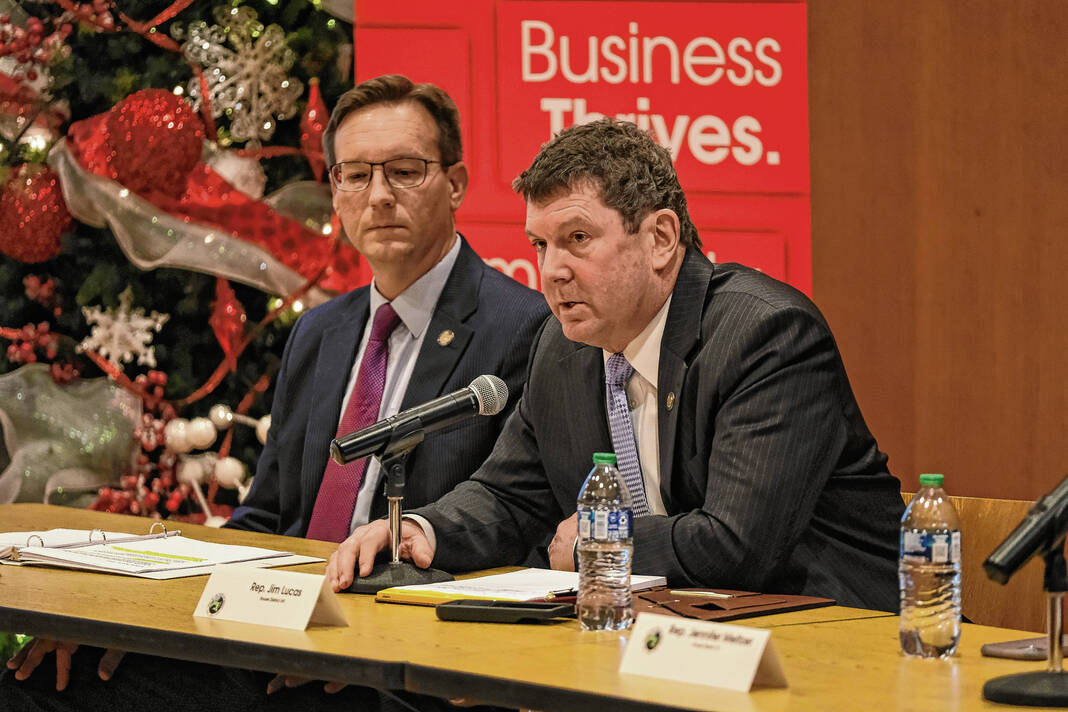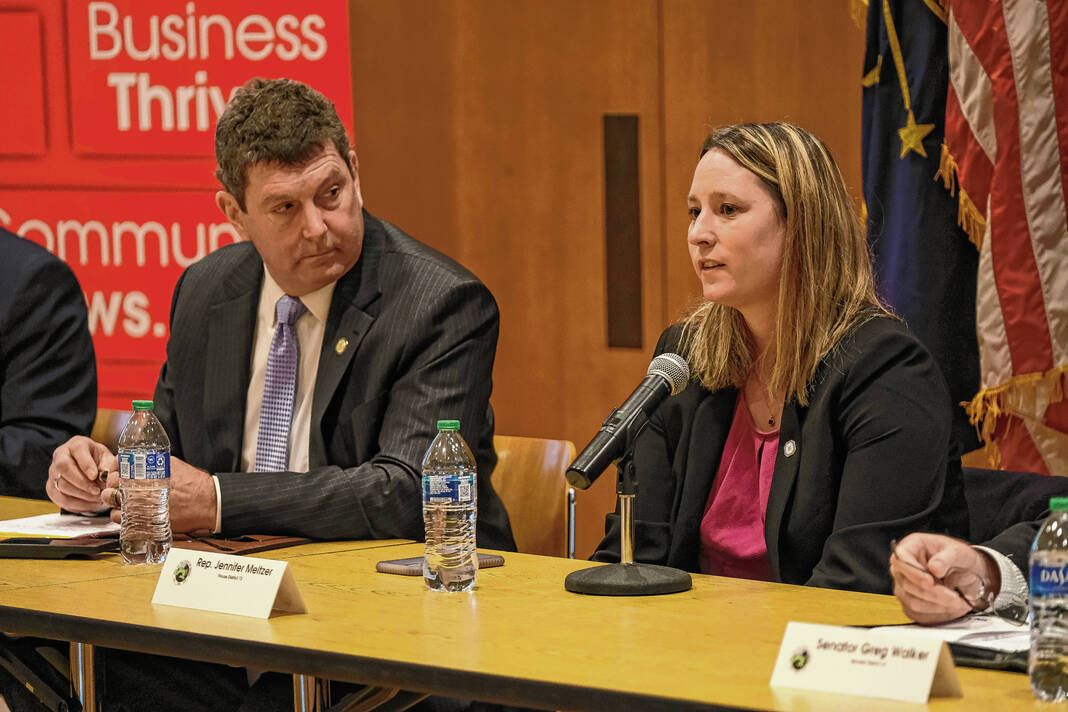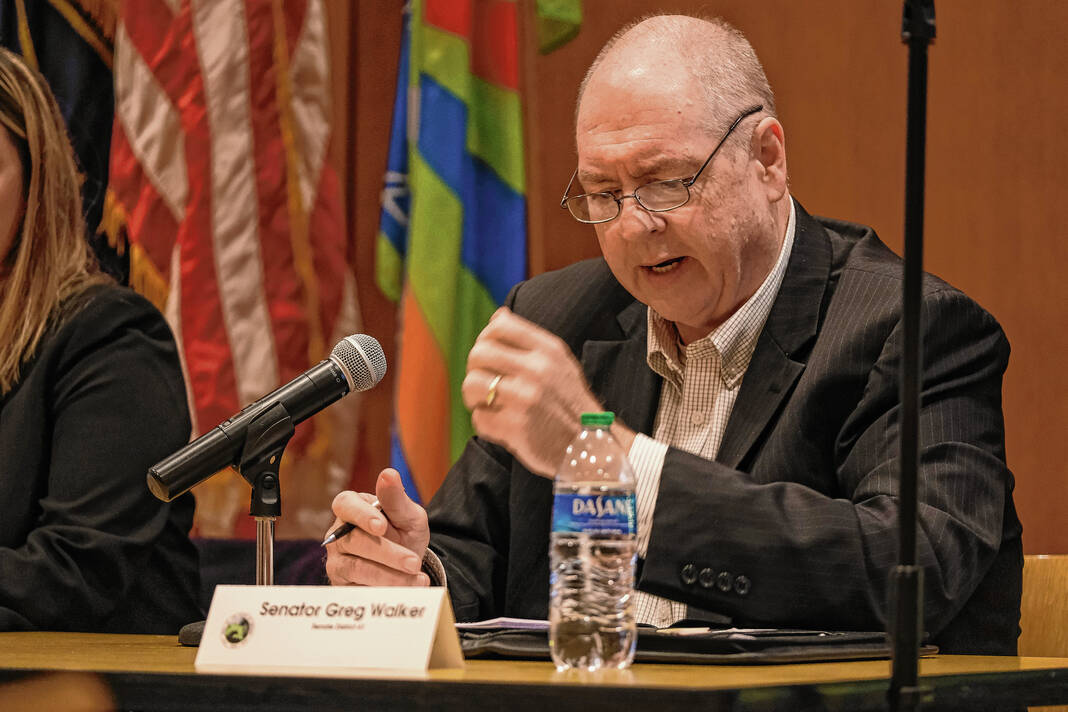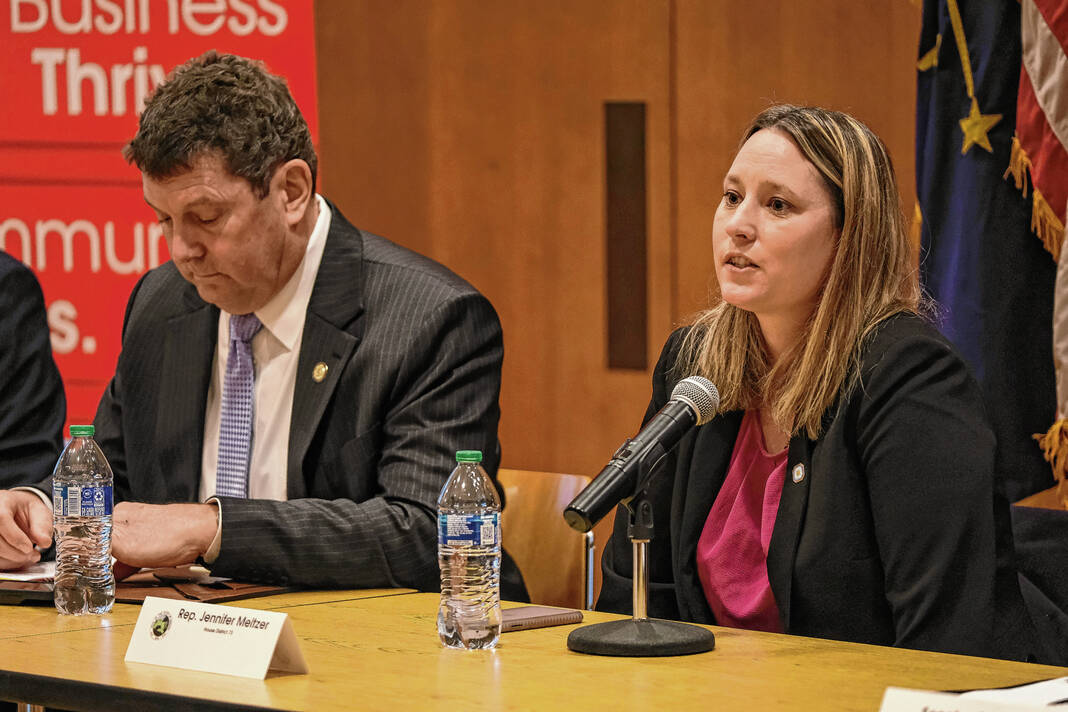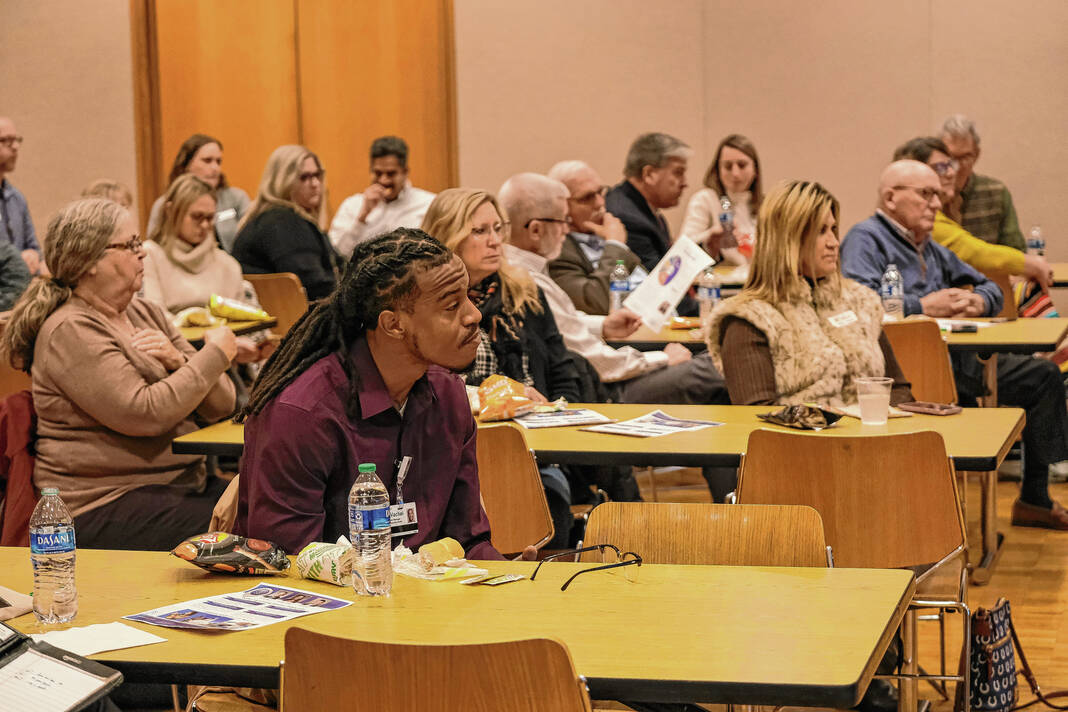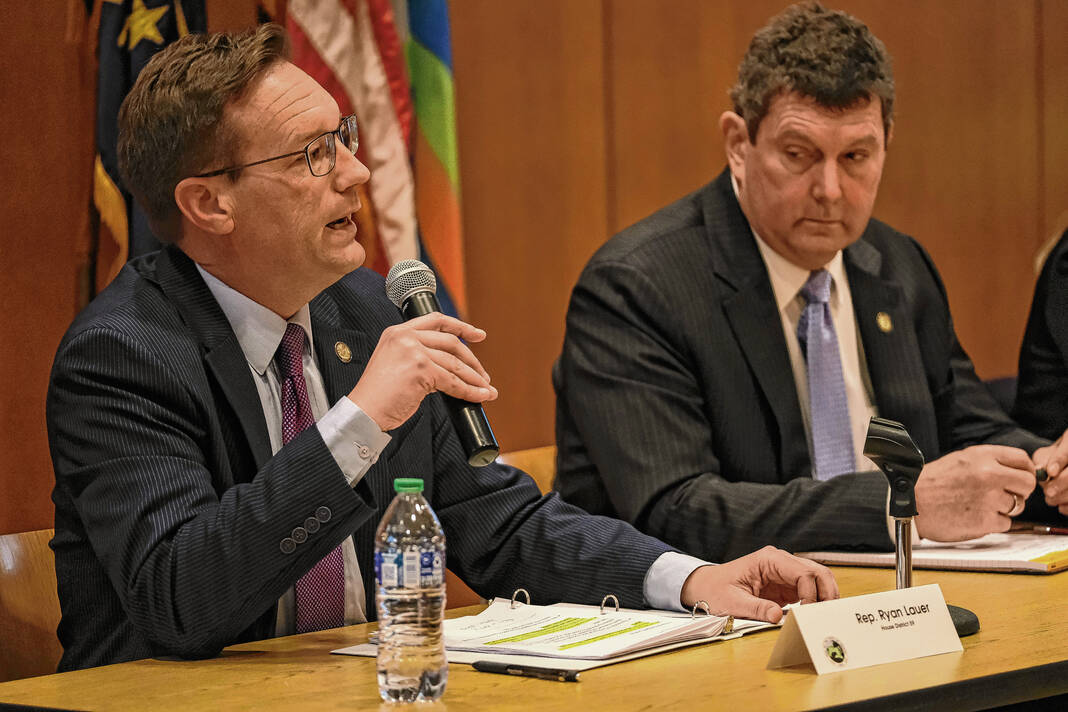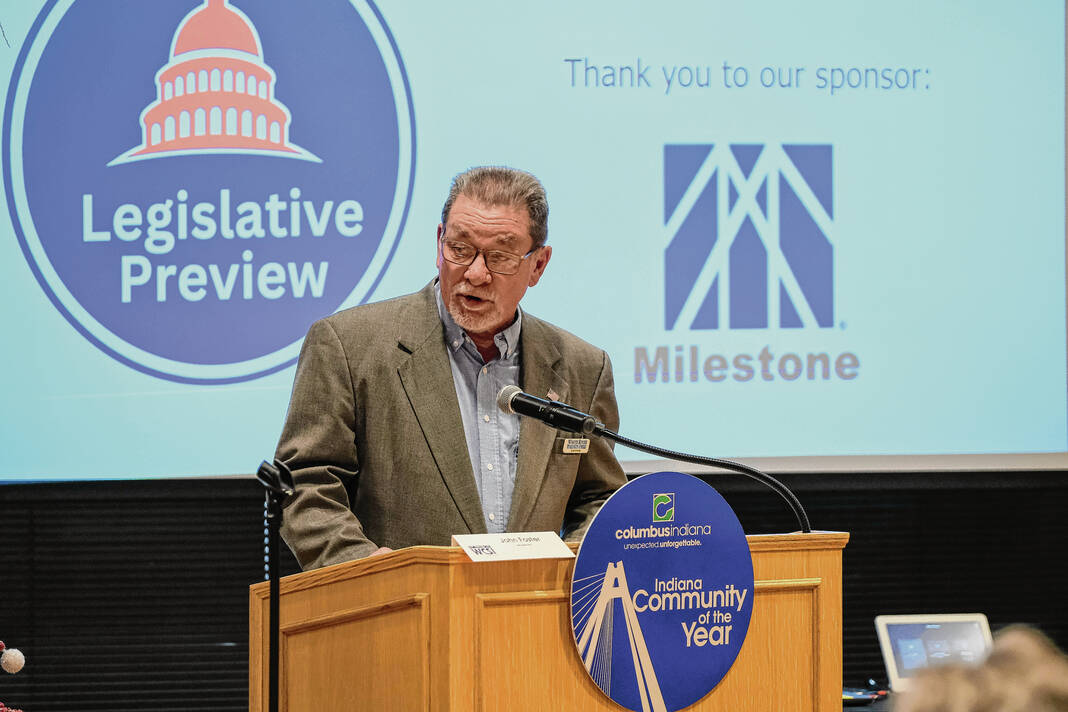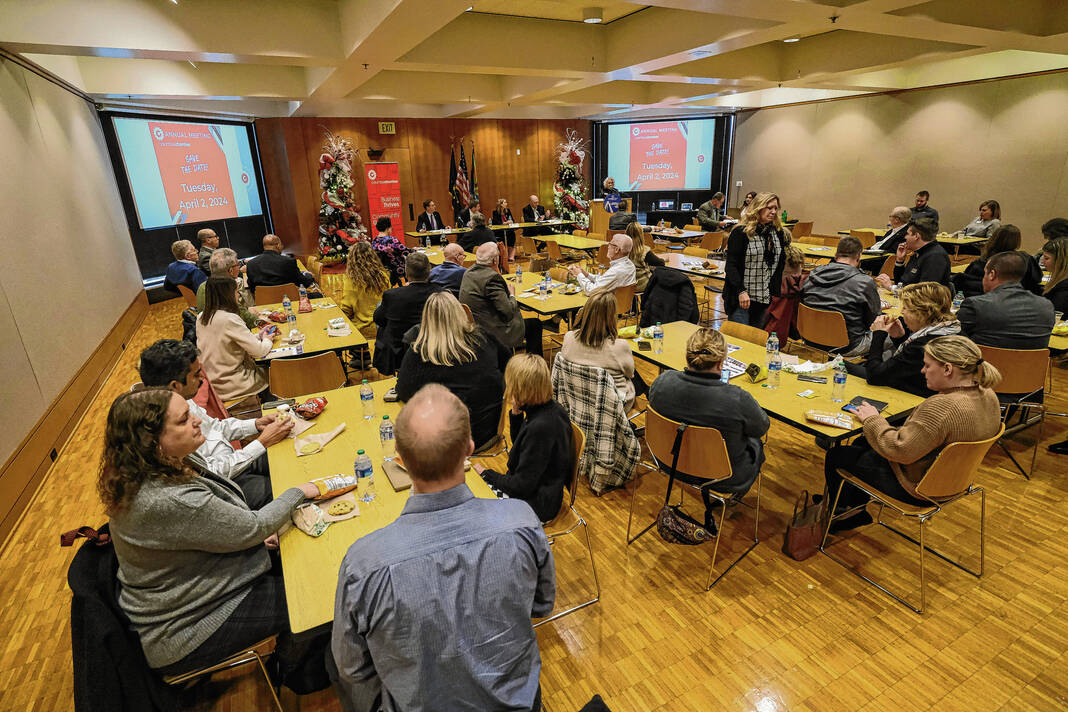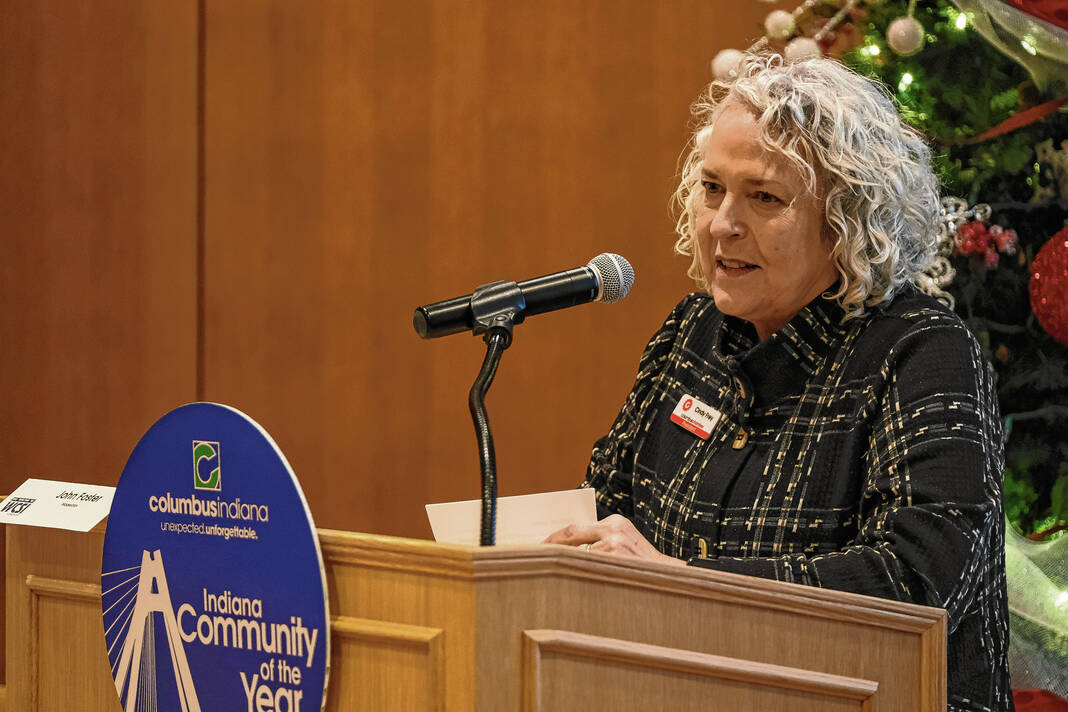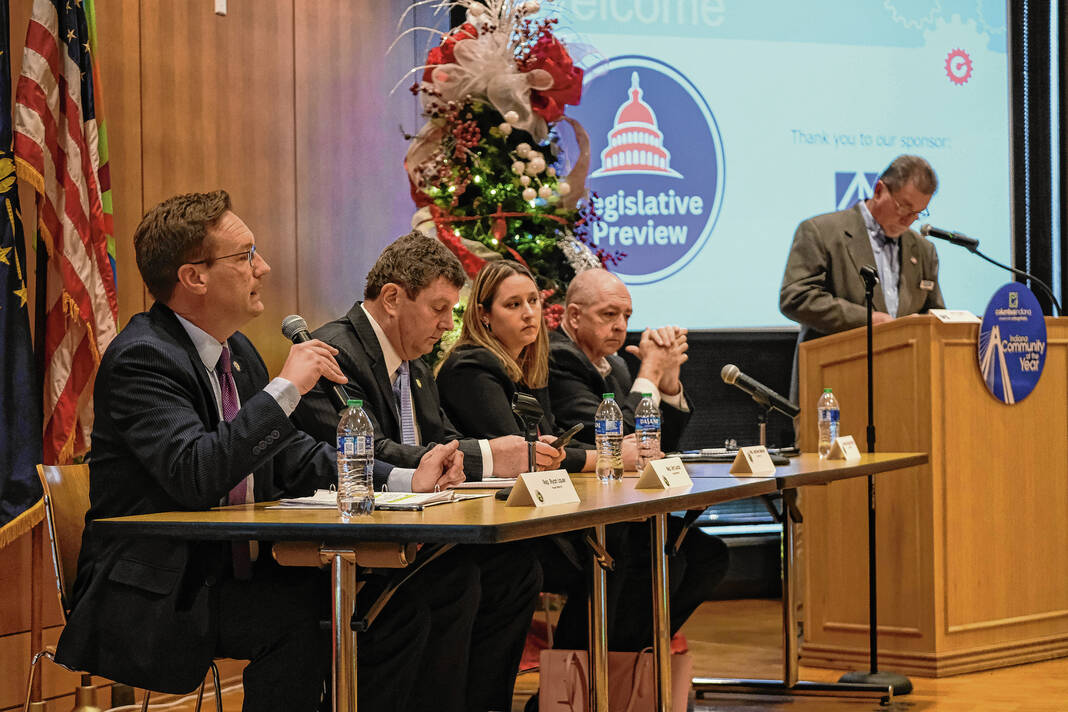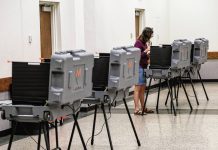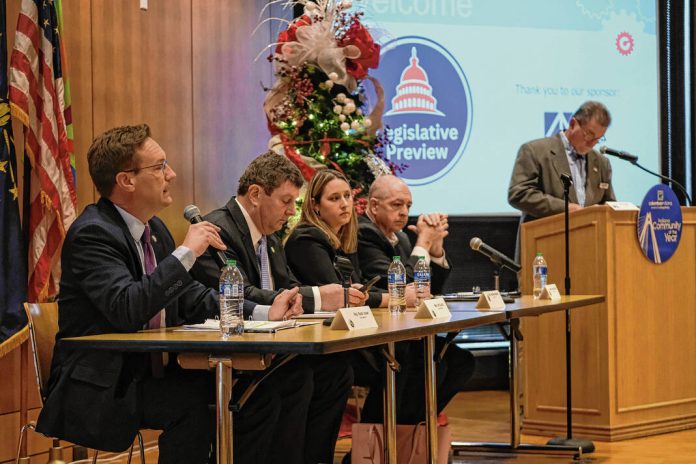
Mike Wolanin | The Republic State Reps. Ryan Lauer, R-Columbus, from left, Jim Lucas, R-Seymour, Jennifer Meltzer, R-Shelbyville and and State Sen. Greg Walker, R-Columbus, take part in a Legislative Preview Lunch moderated by John Foster and organized by the Columbus Area Chamber of Commerce at Columbus City Hall in Columbus, Ind., Monday, Dec. 11, 2023. The legislators discussed issues facing the state and what they hope to accomplish in the upcoming short legislative session.
Legislators who represent parts of Bartholomew County were recently quizzed about their opinions on everything from marijuana to artificial intelligence.
The Columbus Area Chamber of Commerce held a “legislative preview lunch” at Columbus City Hall on Monday, with local business leaders and community members gathering to hear from lawmakers about their thoughts on a variety of topics that might come up during the 2024 legislative session, which begins in January.
Sen. Greg Walker, R-Columbus; Rep. Ryan Lauer, R-Columbus; Rep. Jennifer Meltzer, R-Shelbyville; and Rep. Jim Lucas, R-Seymour, attended the event.
Legislators initially responded to questions posed by moderator John Foster, which were developed by the local chamber based on priorities from the Indiana Chamber of Commerce, according to Chamber President Cindy Frey. There was then a time for audience members to pose their own questions.
During the Q&A portion, one attendee noted that he recently received a survey from Lauer in the mail, with one of the questions asking about his thoughts on the legalization of marijuana. In turn, he wanted to know where the lawmakers stood on this issue.
Lucas, who was chosen first to respond, said that he is in favor of legalization and has personally experienced benefits from the substance such as easier sleep.
“Yes, people are going to abuse it,” he said. “People abuse so many things in many other areas. We deal with that. Right now, I think it is criminal how the state of Indiana is treating cannabis.”
Earlier this year, Lucas pleaded guilty to operating a vehicle while intoxicated, a Class C misdemeanor and leaving the scene of an accident, a Class B misdemeanor, stemming from his May 31 crash into guardrails on Interstate 65 at the State Road 11 interchange, after which he fled the scene, leaving his truck behind a restaurant, and was found walking before his arrest by Seymour police.
The Indiana State Police crash report showed that Lucas failed multiple field sobriety tests following the accident. Additionally, a portable breathalyzer test showed that his blood alcohol concentration was over the legal limit, according to court records.
He was later found to have THC — the active ingredient in marijuana — in his blood the day he was arrested, according to toxicology results that were reported to investigators after Lucas was allowed to enter the plea bargain, plead guilty and be sentenced in one court hearing in Jackson County.
He received a 60-day suspended sentence on the OWI charge, and a 180-day suspended sentence for leaving the scene, placed on probation and had his driving privileges suspended for 60 days, except being allowed to drive to and from work, according to court records.
Both Meltzer and Lauer said that they are somewhat open to the idea of legalizing marijuana use but do not want to act while it is still an illegal substance at the federal level.
Lauer added that while he has not been in favor of this in the past, he put the question on the survey because he wants to know what his constituents think.
“There are a lot of social ills that come along with (marijuana use),” he added. “…I think we have to be very careful about how we approach that.”
Walker stated that he is not a “hard no” on the subject but also not a “yes.” He also said that he is frustrated by a lack of definitive information on the subject.
Another topic that divided the lawmakers was that of “driving privilege cards.” In posing the question, Foster referenced Senate Bill 248, which Walker co-authored. According to the bill digest, this legislation provided that “an individual who is an Indiana resident and cannot provide proof of identity and lawful status in the United States may apply for a driving privilege card to obtain driving privileges.”
The bill was introduced in the 2023 session but did not make it out of the Senate.
Proponents say that issuing these cards would improve public safety and increase the number of insured drivers, Foster said.
Walker and Meltzer both expressed support for the idea.
“If we can get them this card, they can get insurance,” Meltzer said. “… It makes it so those individuals being on the road with you is now safer for you because they have insurance.”
Lauer and Lucas, on the other hand, said that they are against giving driving privilege cards to individuals who are in the country illegally. Issuing the cards is not a guarantee that these individuals will buy insurance, Lucas said.
Education also came up during the event, with attendee Mary Kohen asking about state education officials’ recent discussions regarding retention for third grade students who don’t meet literacy benchmarks.
The Indiana Department of Education stated in a recent release that thousands of Hoosier students advance to fourth grade each year without foundational reading skills.
“If they do talk about retaining kids who cannot meet that, the standards, what is the situation going to be with overcrowding of classes?” asked Kohen. “There’s also psychological and social problems with holding kids back that may just have the reading problems.”
She added that she is involved with the Bartholomew Consolidated School Corp.’s Book Buddies program and is also curious to see if the state is looking to implement similar initiatives to help students.
Walker pointed to the importance of parent involvement in fostering literacy.
“We read to our kids every day growing up, and I could not have made a greater investment in my children’s future,” he said. “We’ve got several school representatives here. If you want to start making homework assignments, make them for the parents. Make them schedule time to read to their kids, and I’ll sign that. I’ll carry that bill if that’s what we’re going to do.”
He added that his father-in-law, who was moved up a grade, said the “worst thing” you can do to a student is to separate them from their cohort.
Meltzer noted that there are some students, such as those on an Individualized Educational Plan, who should not be held back if they are below the reading level. However, she added that there are other instances where continually passing students who are not ready would be a “disservice” to their education.
“I don’t want to mandate teachers on how they should hold kids back,” she said. “But we do need to take a look at this and figure out if we are passing kids along only to set them up for failure later.”
Lauer pointed to the state’s recent legislation around the science of reading as a tool to improve literacy, while Lucas said that the state’s education system is ineffective and needs to be reevaluated.
The lawmakers also fielded questions about topics such as healthcare, early learning, social media, technology, raising the cigarette tax and affordable housing.
While the local chamber of commerce has long held Third House sessions during legislative sessions allowing the public to interact with state lawmakers, the preview lunch is a new event, said Kami Adams, director of operations and finance at the chamber.
The chamber also plans to hold a similar event midway through the legislative session on Feb. 5 and a third event at the end of the session on March 25, she said. Both of those events will be free and held at Columbus City Hall.
These sessions will be held at 8:30 a.m., according to Frey.
When asked about what the new format means for the future of Third House sessions and virtual opportunities to meet with legislators, Frey replied, “We heard a lot of voices in our community who said they miss this part where they get to have an actual face-to-face conversation with legislators. So we’re back in person.”
The 2024 legislative session is scheduled to start Jan. 8, officials with the Indiana Senate told The Republic.

